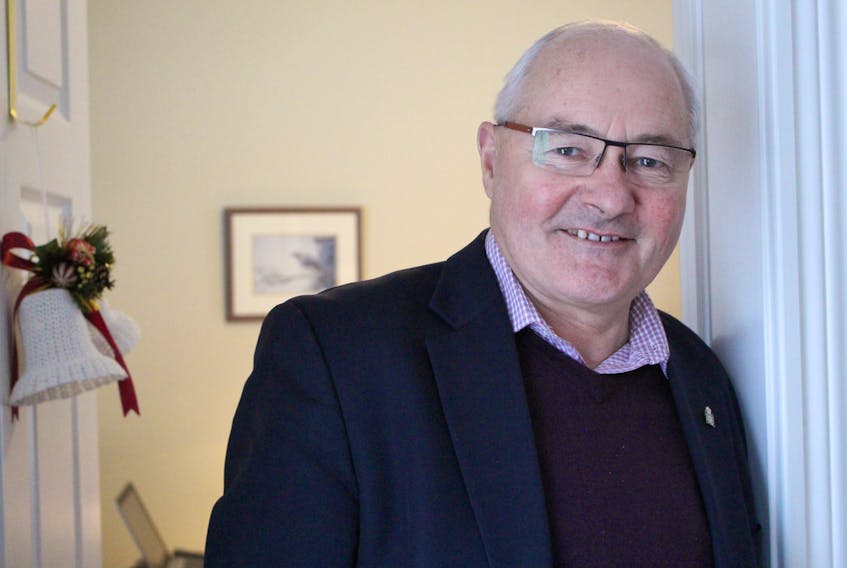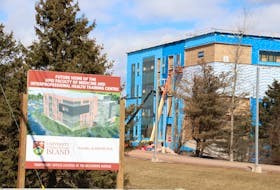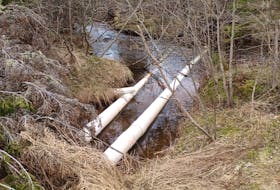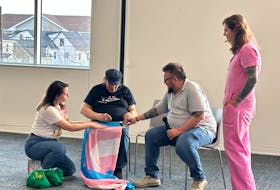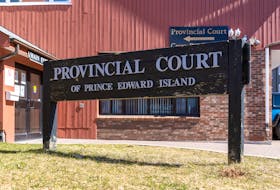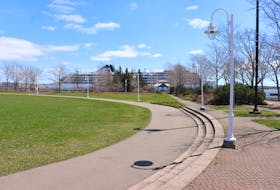NORTH WILTSHIRE – For Wayne Easter, 2017 had its accomplishments, but it wasn’t without its pitfalls. Recently the Member of Parliament for Malpeque, a riding that covers over 20 towns and communities, (and chair of the finance committee and co-chair of the Canada-U.S. Inter-Parliamentary Group) sat down with the Journal Pioneer as this year comes to a close.
Q: What were some of your personal highlights this year?
“Believe it or not a highlight was the pre-budget consultations we did this year. There was a lot of work put into them. We made 92 recommendations that we think are pretty sensible. This came from over 400 submissions, 300 witnesses with hearings about productivity and competitiveness. What’s exhilarating about it was to see the ideas that are out there and potential that Canada has.
“I met with people of the financial sector in Washington and New York. It really shows you Canada’s place in the world. We are a small player, but an important one.
“We got the birthplace of Confederation bill through. That was my bill, and that was really great to see P.E.I. recognized as the birthplace of Confederation.”
Q: You were involved in the North American Free Trade Agreement discussions while working on the Canada-U.S. Inter-Parliamentary Group (IPG). What was that like?
“It is an extremely important group at the moment because of all the things that are going on in the United States. We discussed the importance of the Canada-U.S. relations, the NAFTA talks, softwood lumber, border security and more.” Easter participated in two congressional meetings, one in May and the second in November, which featured U.S. senators and other representatives.
“I think Canada’s strategy is a good one, in which multiple levels of government are meeting with their American counterparts.”
Q: What do you feel you’ve learned from the NAFTA talks and working on the IPG?
“There’s a tremendous amount of uncertainty and a lot of confusion. No one really knows what the president may or may not do. They’ve always needed congressional approval to sign an agreement, but what about tearing one up? But there is a desire to maintain the trade relationship and make it work.”
Q: In your opinion why is maintaining such a strong trade bond with the United States so important?
“Seventy per cent of our trade goes to the U.S. but… that tells me we’re too dependent on the United States. We have to diversify our trade elsewhere, and we are trying to do that. Part of our problem in terms of energy resources nationally, is we are captive to the U.S. We don’t have pipeline to the East or West, although we just announced one.”
Q: Have constituents and Islanders raised their concerns about NAFTA to you?
“The farmers, the fishing sector, aerospace industry, even smaller companies that do business in the U.S. are raising concerns. We need to maintain that supply management industry. It is one of the best examples of rural development there is. And it is mentioned in probably about 10 per cent of the meetings I have in the U.S. Dairy is a thorn in their side, but like I tell them, it’s not our dairy that is the problem, it’s how they are organized in the States.”
Q: What successes have you seen this year?
“The government’s vision became more visible in 2017, in terms of the implementation of some of the things we proposed to do. Working in co-operation with the provinces to create policies… like the Canada child benefit, that is a really big one. Working on strengthening the Canada Pension Plan, a national housing strategy, early learning and childcare. Climate change is coming along, and although the carbon pricing issue is difficult, it needs to be done… We’re an Island; we face it more than anyone else.
“Here in the province we made historic investments in infrastructure, while businesses, tourism and other industries and businesses also benefitted.”
Q: What things do you think yourself, or government could have done better this year. Are there things you should have been fought harder for?
“A big one locally, is the EI zones. The two zones, which I don’t admit are a problem and I’ve stated and continue to. We have failed to meet the election commitment on that as of yet. Hopefully we can get there. In a place the size of P.E.I. we should have one zone, but in order to not impact those that are in the ‘rural’ zone, we would need a five-week addition on the end of the unemployment drawing period… That was our commitment and we’ve failed on that.
“The way the small business tax issue was handled was problematic. Small businesses, farmers, fishermen, were upset and I came down on our government and argued that it was a consultation period and things needed to be looked at. Now we’re basically dealing with moving to a fairer taxation system which deals with the income sprinkling issue. I think we’re on sound footing to ensure everyone is treated fairly.”
Q: With the current discussions of legalizing marijuana, what should be done legislatively?
“I support the legalization strongly. The reality is that it is being used whether we like it or not, but how do we get better control of it so there isn’t impurities put in the drug, they’re not being filtered with harder drugs, how to try to take it out of the criminal element, those are the questions. And regulating it and legalizing it is the best way to do that. Some people are saying we gave too much to the provinces by going with a 75-25 split in the taxes, but it’s the provinces and the municipalities that will deal with the consequences. Now it’s the provinces’ turn to treat the municipalities equally when they dispense the fund they have to deal with legalization.”
Q: What should be done about the tolls on the Confederation Bridge and has the government discussed it?
“We hear Percy’s (Downe) point of view. But we have an agreement that was signed when it was built and if we are going to change the bridge tolls, we need to look at the economic impact. What will it do to businesses in surrounding areas. I can understand the feeling people have about the tolls, but I believe it was wrong of us not to put tolls on the bridge in Montreal. If we don’t have bridge tolls, you’re asking every Islander and every Canadian to pay the tolls in subsidy because the company that built the bridge has to be paid. It’s too much to ask of those who don’t use the bridge.
“This year, the federal government has subsidized more than $65 million over and above the bridge tolls. It’s wrong to say that the government isn’t doing their part because we are. The federal government writes a cheque to the company of what the bridge tolls didn’t cover.”
Q: What are your goals or resolutions for 2018?
“Locally, I would like to see us get to one EI zone, and we’ll continue to work on that. I’d like to see us continue to assist with business investment to maintain our younger population on P.E.I. to ensure there are opportunities here for them to work and raise families. More related to my committee work, achieving a NAFTA settlement that assists all three economies–Canada, America and Mexico–that will make North America competitive with the rest of the world. On the finance side, I believe that our prebudget report is the best we’ve done. There are a lot of good and simple recommendations like funding the literacy alliance. We didn’t go for the big money; we went for the little things that will make a difference. But implementing them will be the next step.”

